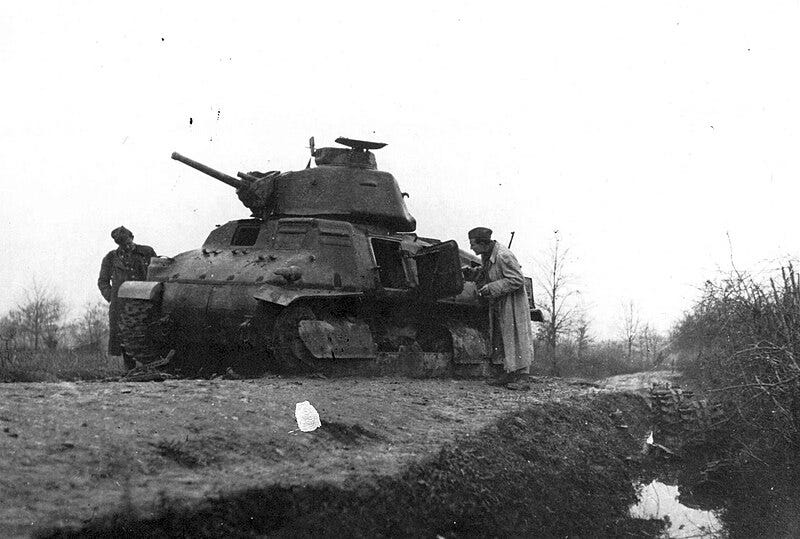Citizen v. Self
Adam Tooze on industrial warfare, Oz Frankel on America in Israel, and Mary Karmelek on the trappings of home
This week at Public Seminar, we’re thinking about the nature of civil war. What kind of social rift makes a state or culture—or, for that matter, an individual—attack itself? And where does external influence come into play?
In his survey of Italian journalist and fascist provocateur Curzio Malaparte’s war writing, Adam Tooze shares a startling account of World War II as a civil war: Europe v. Europe. In the clash between “different modes of industrial, mechanized modernity,” Tooze writes, “new forms of morality and solidarity” replaced the old conventions. “Reading the books sixty years later,” Tooze writes, “one cannot help wondering whether we don’t need a Malaparte for our own age of polycrisis.”
In her review of Ariane Koch’s surrealist novel Overstaying, Mary Karmelek examines an internal conflict of the opposite scale: the soul stuck in the self-imposed detention of her own privacy. It takes a visitor—both wanted and unwanted—to upset “the physical and psychological baggage the narrator’s accumulated throughout her life.”
And in a conversation with Claire Potter, historian Oz Frankel offers a counternarrative in which violence and intimacy intermingle: the cultural exchange between Israel and the United States from 1967 to 1973. The results were far from a straightforward “Americanization,” and often strange, Frankel notes: “Remember, part of the dynamic of a contact zone is mistranslation.”
When Is It Time to Leave?
Mary Karmelek
In The Poetics of Space (1957), Gaston Bachelard argues that “a house that has been experienced is not an inert box. Inhabited space transcends geometrical space.” Our homes, our pasts, then, can exist outside of traditional space and time, giving us the luxury of easy access in and out. But what happens if we get stuck? What happens when we can’t bring ourselves to leave?
In Overstaying (Dorothy Project, 2024), the first novel written by the Swiss playwright Ariane Koch (and translated from the German by Damion Searls), the home, the site of memory and remembering, is made literal. When we meet the unnamed narrator, she is living in the same town where she was born, in the same house where she grew up, a place she is desperate to leave but cannot seem to get away from.
Curzio Malaparte’s War
Adam Tooze

Machine civilization gives us new forms of morality and solidarity. In one unforgettable passage, [Malaparte] describes how a Soviet POW is drawn out of his reserve by his fascination with a German tank. When the prisoner notices a loose bolt on the tracks, his anxious gaze alerts a German mechanic, who thanks him for noticing the problem they had missed during their routine daily check. What bonds the men together, across all the deep differences of conflict and culture, is the common care for machinery.
Israel’s American History
Oz Frankel and Claire Potter

Oz Frankel: It’s important to note that Israel came out of the 1967 war with great self-confidence. Specifically, the Israeli Air Force demonstrated immense capacity in aerial battles, at a time when the United States was mired in the Vietnam War. At that time, American pilots were not well-trained to engage in dog fights. So, while Israelis went to California to to learn how to fly the jet, they also taught their instructors.
A kind of give-and-take in military affairs emerges from this by the 1970s. Israeli advice shaped the American Air Force, and more recently, practices initiated by Israel—drone attacks on individuals, assassination from the air—were adopted by the United States during the war on terror. The military relationship was never one-sided: information and know-how flowed in both directions.




